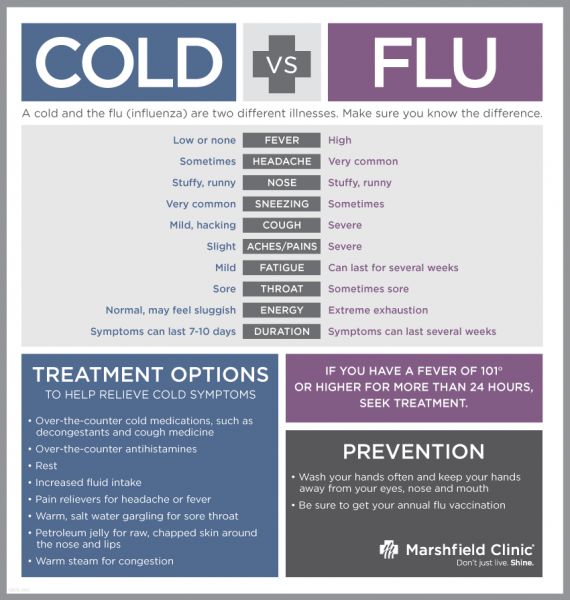Cold vs flu symptoms: Are you at risk?
Click to read the full story: Cold vs flu symptoms: Are you at risk?
While the main way to get the flu is to be in contact with someone who has the flu virus, that doesn’t mean you aren’t more susceptible. Some people are at a higher risk of getting the flu because of where they live or work, while others have a higher risk of developing complications as a result of getting the flu. Here are some risk factors you should know about.
Occupations That Put You at a Higher Risk
Generally speaking, any occupation where you are around a lot of other people will put you at a higher risk of getting the flu. This is more prevalent when you have actual physical contact either with people who might have the flu, or the surfaces they have also touched. For example, people who work at schools are often at a higher risk. You have children who might come in with germs and viruses, touching the same desks, chairs, books, and door handles that you are touching. People who work in medical centers, hospitals, and doctor’s offices are naturally at the highest risk of getting the flu and the common head cold as well.
Being at Risk for More Severe Complications
Some people also fit into a group of people that might have more serious complications. This is good to know because it shows how important it is for you to get fast treatment. The last thing you want to do is have the flu, not treat it, and end up in the hospital with an IV because you did not act fast enough. People who tend to be at a higher risk for more serious complications include senior citizens, younger children and infants, and pregnant women. See a doctor if you fit any of these categories or someone you know has the flu, and make sure you get proper treatment.
Be Careful With These Medical Conditions
Lastly, be aware of the medical conditions that put you at a greater risk. These don’t necessarily put you at a higher risk of getting the flu, but of the complications and more severe side effects of this type of virus. You should be more wary if you have asthma, a chronic lung disease or heart disease, neurological conditions, liver or kidney disorders, weakened immune system, or if you have an endocrine disorder like diabetes. Complications can vary from pneumonia to organ failure, so treat every flu like a serious condition.

Cold VS Flu Symptoms
Fall and winter is typically when the cold and flu season is, but these are not the same illnesses. They are often confused because they sometimes start in the same way, but even down to the symptoms, they can be quite different. Take a look at these similarities and differences between cold and flu symptoms.
Cold Symptoms
Many times, you know you feel ill but are not sure if you have the cold or the flu. The reason this is an important distinction is because they are treated somewhat differently, and while the cold is something you can handle at home, many cases of the flu require seeing a doctor. With a cold, the symptoms tend to be less severe, and often include congestion, a runny nose, cough, and sore throat. You might have a slight fever, but it is often not too severe. You may notice these symptoms for a few days or up to a week. The cold usually lasts fewer days than the flu.
Flu Symptoms
With the flu, expect to experience your symptoms for a longer period of time, and often more severely. It may start similar to a cold, with a sore throat, cough, and congestion. However, the flu often leads to bad headaches, a high fever, worse cough, and muscle aches and pains. You may also notice that as the flu progresses, you start experiencing severe fatigue, to where you can barely get out of bed and move around. Some people with the flu may also experience diarrhea and vomiting. Since you are at risk for dehydration with the flu, you should see a doctor for proper treatment.

Treating the Cold VS the Flu
If you think you have the cold or flu, you might want to see a doctor in either case. With a common head cold that doesn’t get better in a few days, it is good to see a doctor and find out if it might be a sinus infection, flu, or other illness. Treating a head cold often includes getting plenty of fluids, rest, and treating your various symptoms. With the flu, your doctor might prescribe antibiotics or other medications, and hospitalization may be required in more severe cases. Here’s your best bets for cold medicine.
If you have either the cold or flu with vomiting and/or diarrhea, see a doctor. This can increase your risk of dehydration, so if you can’t even keep fluids down, you might need medical treatment.
The post Cold vs flu symptoms: Are you at risk? appeared first on Movie TV Tech Geeks News By: Jackie Warner
